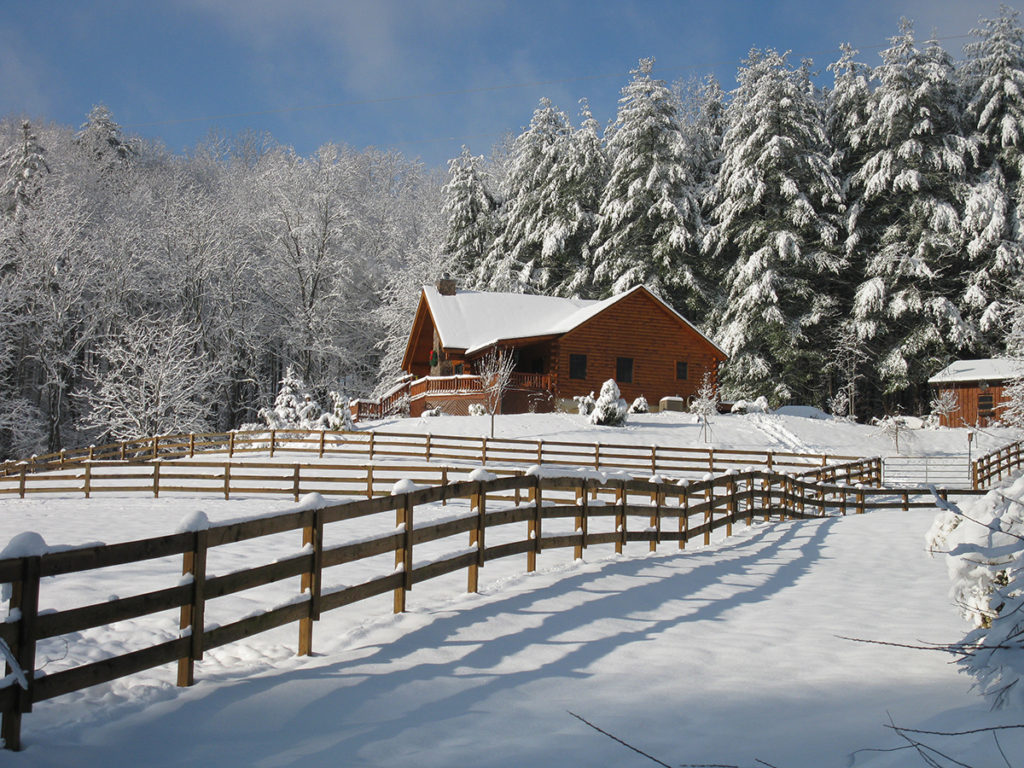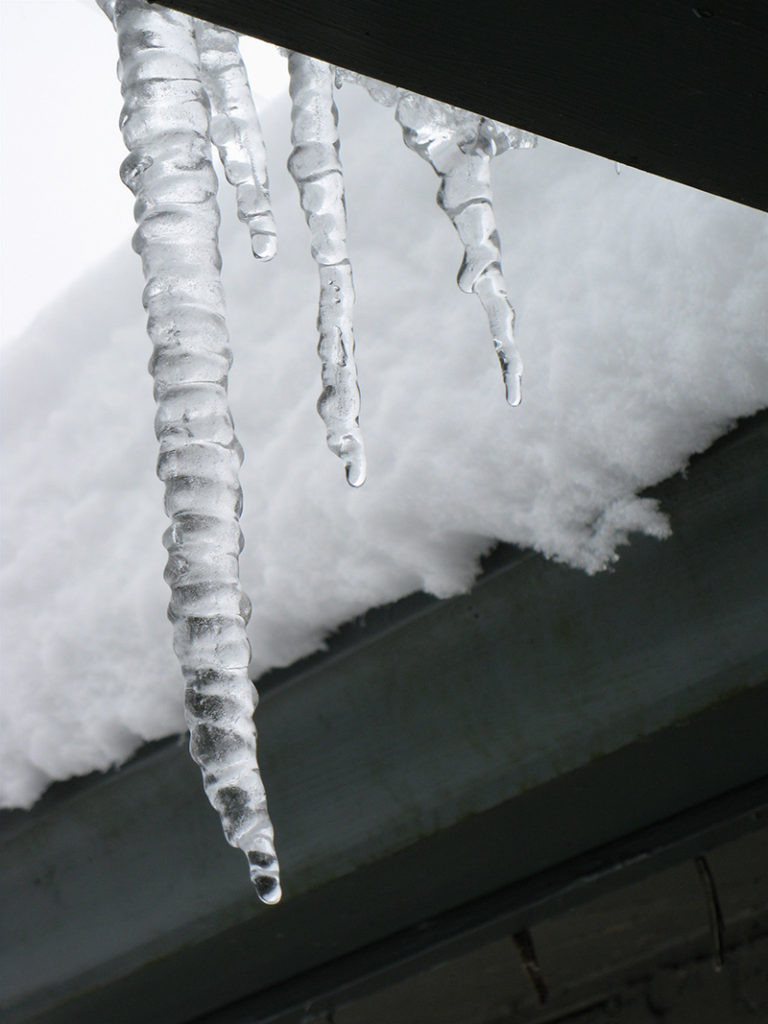
This final installment of our four-part series takes us into the cold depths of winter. Winter is the time to snuggle in and make sure your home is prepared for harsh weather.
OUTSIDE

Dam that ice!
Those icicles that form along the eaves of your roof may be pretty, but they’re really bad news. That’s because the conditions that cause them to form also cause ice dams. What’s an ice dam? It’s a thick ridge of solid ice that forms along the eaves of your house. Ice dams form because heat in the attic causes snow melt on your roof, but the eaves remain cold, and the water refreezes along the edge of your roof. Then as more water melts on the roof, it backs up behind the ice dam and can damage shingles, leak into your attic, and cause a lot of damage. One way to stop ice dams is to install heated cables along the eaves before the first big snow.
Click here to learn more about quick fixes and permanent solutions to ice dams.
Thar she blows!
Winter means there are times you will be snowed in. At the very least, you’ll need one of those lightweight, plastic snow shovels for clearing a path to your door. Some even relish this as welcome winter exercise. Others are not cut out for a lot of shoveling, due to health conditions or advancing age. That’s when a snow blowercomes in handy. If you own a snow blower, be sure to get it serviced before the first big storm. Tune it up yourself, or take it to your nearest small engine repair shop and have it done. Also, be sure to stock up on gas and oil. If you don’t own a snow blower, you might want to get one. Click here for a guide to the best snow blowers.
Ice Ice, Puppy!

Photo by Luke Insoll on Unsplash
Do you use deicer for your walk and outside stairs? Pellets are popular, but they are costly and can be harmful to pets and wild creatures. You can make your own critter-safe ice melt, which saves you money and protects your furry friends from potential harm. It’s safe for your stone and concrete, too! Click here for an easy homemade ice melt recipe.
Supplies!
Store up your supplies before old man winter catches you off-guard:
- Gas for snowblowers and generators
- Canned food for emergencies
- Bottled water (your well pump won’t work in blackouts)
- Batteries
- First aid kit
- Critical medicines
INSIDE

The pipes, the pipes are calling…
In a hard freeze, water in your pipes expands and can cause the pipes to split or burst. Then when the ice melts, water leakage can bring on costly repairs. Some of the biggest culprits are pipes near the outside of the house, such as outdoor faucets or water pipes that run through an uninsulated garage. Here’s how to prevent your pipes from bursting:
- Shut off outdoor faucets and disconnect hoses.
- Wrap your pipes with foam insulation and tape wherever possible.
- In really cold weather, let your kitchen sink faucet drip slightly to keep water flowing. Open cabinets beneath sinks to allow warm air to enter.
- Set your thermostat to a comfortable setting and keep it there.
- If you leave the house unoccupied, set the thermostat no lower than 55º F to keep the house and pipes from freezing.
Well, well, well

Photo by Generac
What kind of generator do you need? If you want to power your well pump, your refrigerator, and a few lights, you can get by with a portable gasoline generator. Speak to someone at your local hardware or home store about which size generator is right for you. This type of generator should not be hooked into your main circuit breakers, but is intended to be used with long extension cords directly to the devices you wish to power. Also, never use the generator inside your house or garage. It emits carbon monoxide, which can kill you. In fact, if you use a portable generator, be sure to use CO2 detectors in your main living areas.
Winter storms can cause power outages. If your house is on well water, this means the water stops flowing when the power goes out. That’s why a backup generator can be a real lifesaver.
A portable generator requires keeping cans of gasoline. These are flammable, so store them only in proper containers, and don’t keep them inside your house. Also, you can’t keep the gasoline too long. If you don’t use it for your generator in one season, then pour it into your car or mower and use it up. Okay, so portable gas generators can be a lot of trouble. Maybe you should consider a whole house propane generator. This requires a propane tank, either buried or above-ground. A whole house generator has an automatic switch that powers the unit on during power outages, and shuts it off when power comes back on. Installing this type of generator requires a licensed electrician and a certified propane installer. Whole house generators can also be connected to natural gas, if your home is in an area where that is available. Purchase and installation of a whole house generator can be quite costly, but nothing beats it for peace of mind during blackouts. So with fewer home chores to take care of, winter can be a time for reflection, with a raw beauty all its own. Just be prepared, and you can enjoy all this season has to offer.
Call Peter Young Home Inspections
Buying or selling a home? Never sign any contract without first getting a home inspection! Call Asheville Home Inspector Peter Young, 828-808-4980, or click here to make an appointment today.